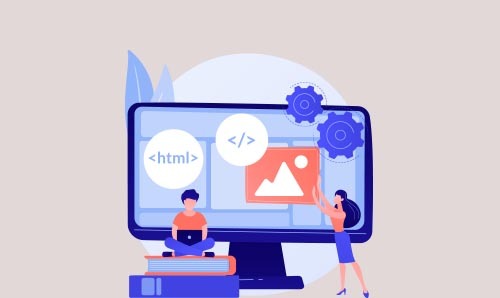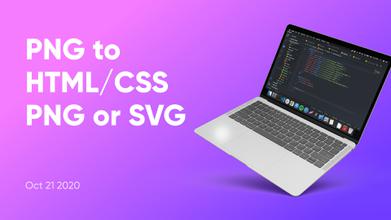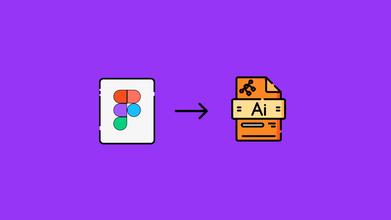Tips To Write Clean Code
Aug 03, 2021 10776 seen
What Is Coding?
Software engineering isn't just about learning a language and building software. As a software engineer or software engineer, you are expected to write good software. So the question is, what makes good software? Good software can be judged by reading a piece of code written in a project.If the code is easy to understand, this means that the software is good and the developers love to work on it. During the development process, no one wants to continue a project with terrible or dirty code. Sometimes developers may avoid writing clean code due to impending deadlines. They are in a hurry to move faster, but in reality, they are going slower. This creates more bugs that need to be fixed later by going back to the same piece of code. This process takes much longer than the time spent writing the clean code. Research has shown that the ratio of time spent reading code to writing is greater than 10: 1.
How to Write a Clean Code?
1. Use Meaningful Names

You will write many names for variables, functions, classes, arguments, modules, packages, directories, and the like. Get in the habit of using meaningful names in your clean code. Whatever names you mention in your code, should serve three purposes: what it does, why it exists, and how it is used. For example:
int b; // number of users
As you can see you need to mention the comment and variable name declaration. This is not a characteristic of a good and clean code. The name you give in your code should reveal its purpose. It should indicate the purpose of a variable, function, or method. Therefore, for the above example, the best variable name would be int number_of_users. Choosing meaningful names may take some time, but it will make your code cleaner and easier to read for other developers as well as for yourself. Also, try to limit names to three or four words.
2. The Power Of i

This is a small tip, but it follows directly from the previous concept. When you have a block of code with multiple loops one after the other, you need different iterator variables. There is always debate about what to use, and the answer is somewhat subjective, but when they go one after the other, it makes sense to declare your iterator outside the loop and reuse it. Not only is it better to look at, since it is always clear that "i" is your iterator variable, but it is also slightly more efficient.
3. Avoid Writing Unnecessary Comments

Often, developers use comments to indicate the purpose of a line in their code. Comments are indeed really useful for explaining the code and what it does, but they also require more careful maintenance of your code. The development code goes back and forth, but if the comment stays in the same place, it can create a big problem. This can confuse developers as well as distract them with useless comments. This does not mean that you should not use comments at all, sometimes it is important, for example: if you are dealing with a third-party API where you need to explain some behavior, you can use comments to explain your code, but not write comments there. where it is not needed. Today the syntax of modern programming languages is based on English, and that's enough to explain the purpose of a string in your code. To avoid comments in your code, use meaningful names for variables, and functions.
4. Be Careful With Dependencies

When developing software, you need to be careful with your dependencies. If possible, your dependencies should always be in the same direction.
When addiction goes in several directions, things get much more complicated. Both objects depend on each other in a bidirectional dependency, so they must exist together, even if they are separated. It becomes difficult to update some systems when their dependencies do not line up. Therefore, always be careful when managing your dependencies.
5. Keep It Functional

The mile-long function definition is an easy way to derange your code. It's usually best to see what is being done. If a function does more than its name suggests, perhaps some of the redundant functions can be singled out as a separate function. This can often help the rest of your code as well because it is easier to look at. And if smaller function blocks can be used on their own, that means other parts of your code can use them without having to duplicate code.
6. Keep It Classy

As with the functional problem, if you store a lot of functionality in one place, it might be better to create a separate class to handle that functionality. Again, it's all about reusability and ordering in programming - maybe some of the other classes use the same functionality, so wouldn't it is better if they instead all refer to the same place that handled all of these things? A good example is when all classes are loaded into resources themselves - the code can be messy, and if you want to change the way you manage resources, you have to change it everywhere. In this case, creating a ResourceManager class with the getResourceByName () function might be a clean and elegant way to make this functionality a little cooler.
7. Whitespace Is Nice Space

People often write crumpled, crumpled code, leaving no space anywhere. What does this lead to? Code that's hard to read. Our eye does not like solid walls of text, so in school, we are taught to break words into paragraphs - the same theory applies here. Using spaces can be incredibly effective and usually has no drawbacks. Sometimes in languages like JavaScript, where the file size of the source code itself is important, you may want your files to be small, and that space can add a few extra kilobytes. For the most part, this won't be a big problem, but in cases where it matters, I still suggest keeping all your whitespace during development so that the code is readable. Then use one of the many smart little programs that go through the code and strip out any whitespace just before loading it.
In general, if you are writing a lot of things together in one block and then trying to break up pieces of code into logical pieces, perhaps your whole code is positioning some text fields, then a line of spaces, and then writing another piece where you make sense of them every one. Things like this may seem annoying at the time of writing but are critical when trying to quickly find something in a large section of unfamiliar code.
Conclusion
Writing and reading code may sound easy if you know what you are doing. However, you are probably not the only one working on the code. If you work in a team, it is a good idea to define best practices and guidelines to make it easier for other team members to work with code.
Following best practices will also help you become a better programmer overall. The main keywords to keep in mind are consistency, simplicity, and readability.


